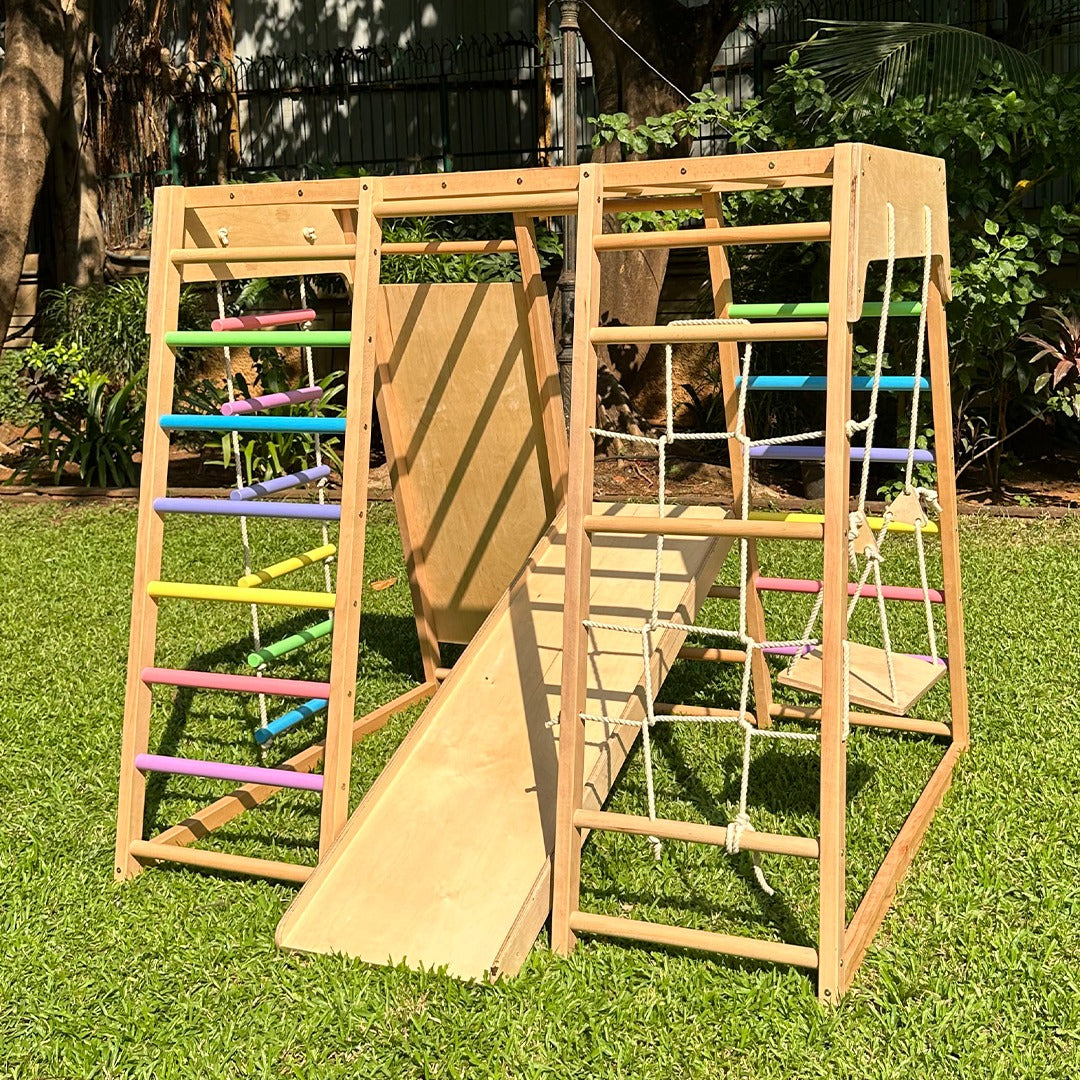Every parent in an Indian household has experienced it: the relentless stream of 'why' questions. From 'Why does the *chapati* puff up?' to 'Why does *Dadi* light the *diya* every evening?' or 'Why do we wear new clothes for Diwali?', these queries can feel like a test of endurance. What if I told you that this seemingly chaotic barrage isn't just curiosity, but a sophisticated, research-backed form of scientific inquiry, actively wiring your child's brain for critical thinking, problem-solving, and a lifelong love of learning?
The Inquisitive Little Scientist Within
Picture a scientist in a lab, meticulously observing phenomena, formulating hypotheses, and testing theories. Your toddler is doing precisely that, but their lab is your home, and their tools are their senses and language. Each 'why' question is a hypothesis, a tiny brain attempting to understand cause and effect, to connect the dots in their rapidly expanding universe. They're not just asking for information; they're building a complex mental model of how the world works, one query at a time.
Research from developmental psychology consistently shows that this period of intense questioning, typically peaking between ages 2 and 5, is a crucial cognitive leap. It signifies the emergence of 'theory of mind' – the ability to attribute mental states (beliefs, intents, desires, emotions, knowledge) to oneself and to others. When they ask 'Why is *Bhaiya* crying?', they are not only seeking a reason but also trying to understand emotions and their triggers, a cornerstone of empathy.
Wiring the Brain for Complex Thought
The act of questioning engages multiple vital areas of a child's brain, performing an elaborate cognitive workout:
Developing Executive Functions
When a child asks a question, their brain must first identify a gap in their understanding, formulate the question, and then process the answer. This entire sequence is a powerful exercise in executive functions – skills like working memory (holding the question and answer in mind), inhibitory control (resisting distractions), and cognitive flexibility (adjusting their understanding based on new information). Think of a child asking 'Why does the *chai* get cold?' and then absorbing the explanation about heat transfer. They're not just learning about *chai*; they're learning how to learn.
Building Critical Thinking and Reasoning Skills
Each answer they receive becomes a piece of their mental puzzle. Over time, they start to notice patterns, make deductions, and even challenge previous understandings. 'Why did the *pakora* float in the oil, but the potato sank in water?' This isn't just about physics; it's about comparing, contrasting, and forming rudimentary logical arguments. They are actively engaging in the scientific method, developing their capacity for logical reasoning and analytical thought long before they encounter these terms in school.
Language and Communication Mastery
Asking questions refines a child's language skills dramatically. They learn to articulate their thoughts, expand their vocabulary, and experiment with sentence structures. Answering them, especially when you elaborate, exposes them to richer language and more complex concepts. This interactive dialogue is far more effective for language acquisition than passive listening, creating a robust foundation for literacy and eloquent expression.
Nurturing the Natural Inquisitor in an Indian Home
In the vibrant tapestry of Indian family life, opportunities for inquiry are endless. The aroma of spices, the bustling sounds of a market, the intricate patterns of a *rangoli*, the stories of *Panchatantra* – each offers a springboard for a 'why'. When your child asks 'Why does *Amma* make *ladoos* during festivals?', you're not just sharing a culinary tradition; you're teaching cultural significance, seasonal cycles, and the joy of giving.
It can be tempting to provide quick, definitive answers, or even to redirect an overly persistent child. However, resisting this urge and embracing their questions can be one of the most powerful gifts you offer. Here's how you can foster this natural scientific spirit:
- Engage Actively: Instead of a dismissive 'Because I said so,' try to provide age-appropriate explanations. If you don't know the answer, say so! 'That's a great question, I'm not entirely sure, let's find out together!' and then actually look it up or explore it.
- Ask Questions Back: Turn the tables. 'What do *you* think happens when the sun sets?' or 'Why do you think the *diya* flame dances?' This encourages them to think beyond simply receiving information, prompting them to form their own hypotheses.
- Explore Together: If the question is about why a plant grows, plant a seed together. If it's about gravity, drop different objects. Hands-on exploration makes learning tangible and reinforces their understanding.
- Validate Their Curiosity: Acknowledge their effort. 'That's a very clever question!' or 'You're thinking so deeply about this!' reinforces their innate drive to understand.
This approach mirrors the Montessori philosophy of following the child's lead, providing a prepared environment for exploration, and seeing the child as an active constructor of their own knowledge. It's about empowering them to be self-directed learners, a skill far more valuable than any specific piece of information.
The Lifelong Echo of 'Why'
The child who is encouraged to ask 'why' is the adult who questions the status quo, innovates, problem-solves, and thinks critically. They are not afraid to challenge assumptions or seek deeper understanding. This foundational skill, honed during those seemingly incessant toddler years, is the bedrock of academic success, professional achievement, and personal growth. So, the next time your little one barrages you with a 'why,' take a deep breath and marvel at the tiny, brilliant scientist in your midst, actively building their brain with every single query.
Nurturing this incredible sense of inquiry requires more than just answers; it demands tools that spark curiosity and encourage exploration. SkilloToys.com offers a curated collection of safe, educational, and engaging play-based learning toys designed to ignite your child's natural questioning spirit and support their cognitive journey.



